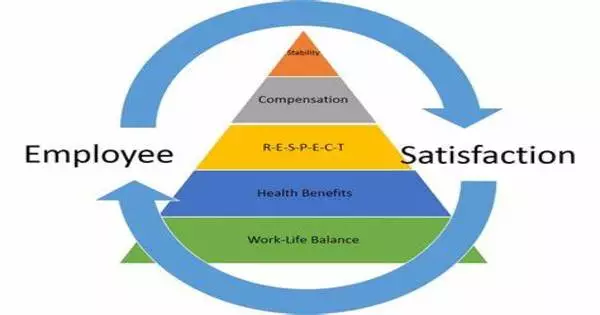Employee satisfaction is the level of happiness and pleasure that employees feel in their jobs and inside the organization. It is a measure of workers’ contentment with their employment, whether they like the job or certain features or facets of jobs, such as the type of work or supervision. It is an important part of organizational performance since happy individuals are more likely to be engaged, productive, and committed to their jobs.
Job satisfaction can be measured in three ways: cognitive (evaluative), affective (or emotional), and behavioral. Job satisfaction measures also differ in the amount to which they measure feelings about the job (affective job satisfaction) or cognitions about the job (cognitive job satisfaction), according to researchers.
Edwin A. Locke’s (1976) definition of job satisfaction as “a pleasurable or positive emotional state resulting from the appraisal of one’s job or job experiences” is one of the most extensively used in organizational research. Others have defined it as simply how satisfied a person is with their employment; whether they enjoy their job.
Here are some key factors and strategies related to employee satisfaction:
- Work Environment: Employee satisfaction can be strongly influenced by a positive and supportive work environment. Workplace culture, team chemistry, and the physical workspace are all elements to consider.
- Communication: Employee happiness requires effective communication. Leadership communication that is clear and open develops trust and keeps people informed about company goals, changes, and expectations.
- Recognition and Rewards: Employee morale and job satisfaction are increased when their contributions are recognized and rewarded. Verbal praise, awards, promotions, and incentives are all examples of kinds of recognition.
- Work-Life Balance: Striking a balance between work and personal life is crucial for employee satisfaction. Organizations that support flexible work arrangements, provide adequate time off, and promote a healthy work-life balance tend to have more satisfied employees.
- Career Development: Employees often seek opportunities for growth and advancement. Providing training programs, mentorship, and a clear career path can contribute to higher job satisfaction by demonstrating a commitment to employee development.
- Compensation and Benefits: Employee happiness is dependent on fair and competitive wages, as well as a complete benefits package. Employees are more satisfied with their jobs when they believe they are fairly compensated for their work.
- Employee Involvement: Encouraging employees to engage in decision-making processes and soliciting their feedback on issues affecting them can increase a sense of ownership and job satisfaction.
Assessing employee happiness on a regular basis through surveys, interviews, or other feedback mechanisms is critical for finding areas for improvement and addressing problems. When firms focus their employees’ well-being and contentment, it can lead to increased productivity, employee retention, and overall success.
















